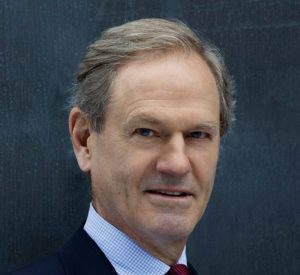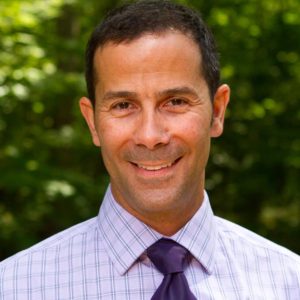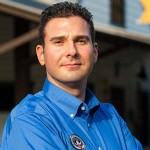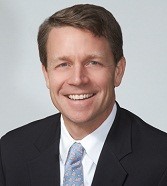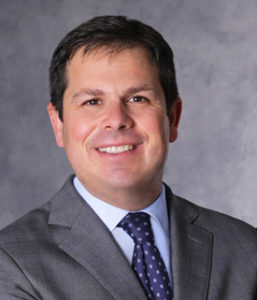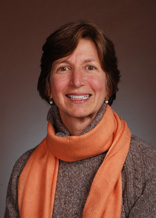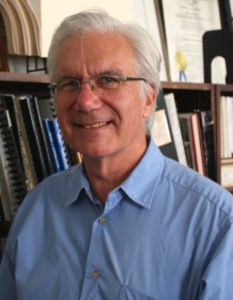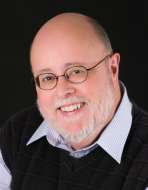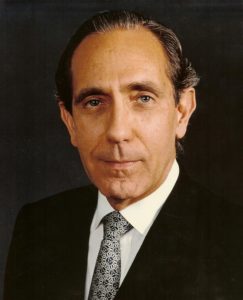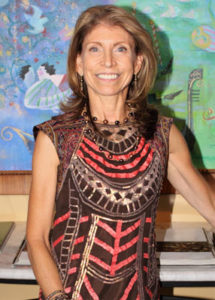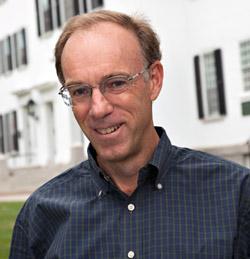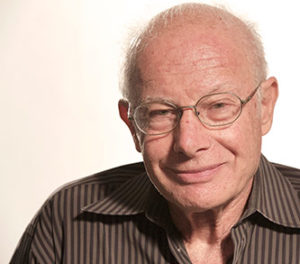 Dr. Foster Hirsch has been a Professor of Cinema at Brooklyn College for over 40 years. He is also a cultural historian who seems to know every movie made during the 1940s and 50s.
Dr. Foster Hirsch has been a Professor of Cinema at Brooklyn College for over 40 years. He is also a cultural historian who seems to know every movie made during the 1940s and 50s.
He will talk first about the House Un-American Activities Committee’s hunt for “subversive activities” in Hollywood, then showed clips from two movies — High Noon and On The Waterfront — to illustrate opposing responses to HUAC, in the face of what we would call today a culture war.
The blacklist’s bookend years were 1947 and 1960. HUAC had begun its hearings before WWII. Then, in 1947 it subpoenaed 41 screenwriters, directors and producers. Most were “friendly witnesses.” But a few, the Hollywood Ten, acknowledged their Communist pasts, but refused to testify or name any other Communists.
The “moguls” who ran the town immediately stopped hiring these men. As was their wont, the studio executives gave in to outside political forces.
The period came to an end in 1960 when Otto Preminger gave writer Dalton Trumbo, one of the ten, on-screen credit for Exodus — after he had written some 30 screen plays under assumed names, among them Oscar winners Roman Holiday and The Brave One.
High Noon is a 1952 film written by Carl Foreman and starring Gary Cooper. Foreman was called to testify while the film was being made. He was deemed an “uncooperative witness,” and knew he would be blacklisted.
“He wrote his own history into the movie” — Marshal Will Kane was about to be pursued by a gang led by a man he had jailed. He asked townspeople to help him defeat this evil. No one stepped up.
“Foreman identified with Will Kane, a lone figure being hounded by the congressional committee.” The movie also “reflects larger issues of human nature, including how self-interest governs us.”
When he asked for help, Stanley Kramer, the movie’s producer and his business partner, rejected him. The studio rejected him. He had no place to go, and left for Britain after the film was released.
The second movie, On The Waterfront, released in 1954, represents a completely different point of view. It was written by Budd Schulberg and directed by Elia Kazan. Both were Communists in the 30s but had become disillusioned because they thought the party represented a “seditious infiltration of American values.”
Kazan appeared before HUAC in January, 1952. He was “completely transparent” about his own Party membership, but named no other names. In a second appearance, after being told his employment would be terminated if he did not name others, he did so. And for this “he was vilified for the rest of his life.”
Yet he thrived. In fact, Hirsch commented, he was “probably the greatest director of actors in history.”
On The Waterfront is a defense of truth telling. Brando’s character, Terry Malloy, is called to a congressional hearing staged to look just like a HUAC interrogation. He told the truth about union corruption, suffered for being co-operative, but was ultimately redeemed by his friends.
No easy choices. In one movie the “witness” refuses to implicate his friends and has no choice but to leave. In the other, he does, and, in the end, wins back his job.
Hirsch closed by asking what would any one of us have done were we called before the committee? Would we have taken a principled stand? And how do we judge those who were forced to testify?
Summary taken from the Westport Y’s Men
A graduate of Stanford University, Hirsch received his M.F.A, M.A. and PhD. Degrees from Columbia University and joined the Brooklyn College (CUNY) Department of English in 1967. He moved into Brooklyn College’s newly-formed Film Department in 1973 and has been there ever since.
Hirsch was a key pioneer in film noir studies, publishing his Dark Side of the Screen in 1981. (An expanded update of this seminal book appeared in 2008.) He’d also shown a marked interest in widescreen cinema with his Hollywood Epic (1979), and over the course of the next decade he began an examination of key facets of mid-century theater and cinema, beginning with his analytical biography of the Group Theater, A Method to their Madness (1984).
After a “flash forward” to neo-noir in Detours and Lost Highways (1997), Hirsch has returned to a series of works examining the various manifestations of midcentury film, with a particular emphasis on the 1950s. During this time his talents as an interviewer began to put him in demand by film festivals and actors alike, who came to trust his low-key, respectful approach and his attention to detail.
As a result, Hirsch has been traveling the globe over the past decade as a lecturer and interviewer, with stopovers in New York, Chicago, Los Angeles, San Francisco, Fort Lauderdale, Tel Aviv, London, and Rome.
Hirsch’s fascination with colorful directors resulted in an acclaimed biography of Otto Preminger in 2008. Subtitled The Man Who Would Be King, it is a sprawling look at the bombastic Viennese expatriate who cast a large shadow over film from the 1940s to the 1960s, mastering film noir, social drama, and historical epic, while doing some of his most interesting work in Cinemascope.
When he is not conducting interviews or presiding over packed classes at Brooklyn College, Hirsch is working on what figures to be his magnum opus, a sprawling study of 1950s film in all its manifestations—but with a singular nod to the widescreen films he grew to love as a young moviegoer.
Arranged by Gary Banks
No video as youtube flagged the meeting video as containing copyright material. It included a clip of “On the Waterfront” . Too bad.
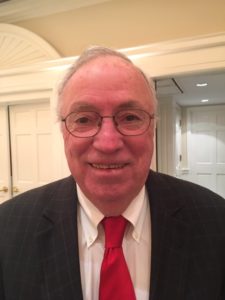 NORTH KOREA: THE LAST STALINIST STATE
NORTH KOREA: THE LAST STALINIST STATE 
